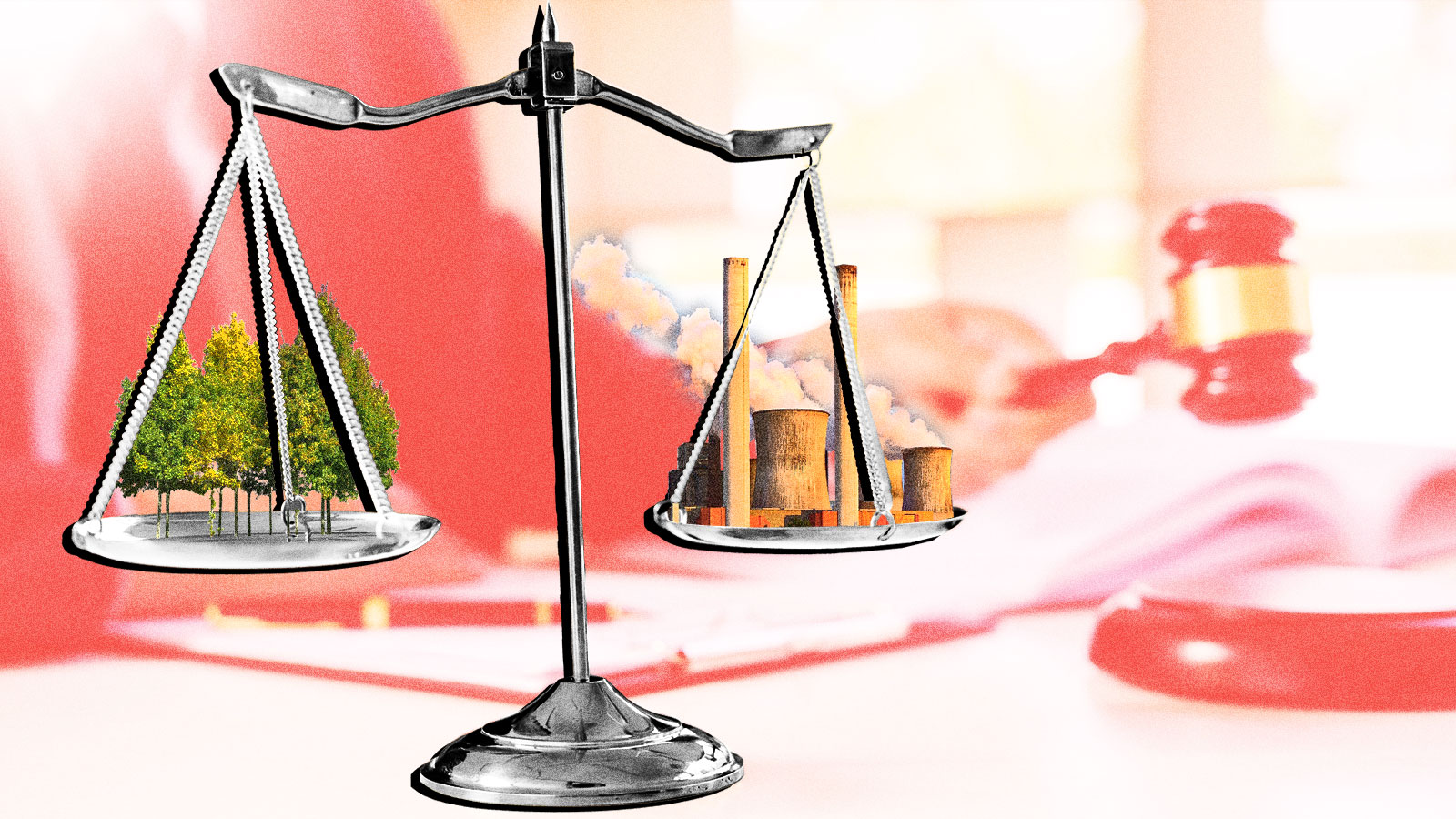In moments when the climate emergency’s dire impacts become unignorable, mainstream news can produce appropriately urgent reporting, such as on wildfires and other disasters. But only sustained coverage of humans’ damage to the planet will communicate the depth of the emergency—and right now, news media have an opportunity to continue reinforcing the need for action.
On August 9, the Intergovernmental Panel on Climate Change (IPCC) released the first part of its sixth assessment on climate change. The report, authored by 234 scientists from 66 countries, states plainly that humans have already significantly “warmed the atmosphere, ocean and land,” contributing to extreme weather events including “heatwaves, heavy precipitation, droughts, and tropical cyclones.” These effects and more will exacerbate if carbon dioxide and other greenhouse gas emissions continue at their current rate or intensify.
The IPCC report also offers hope with the knowledge that the world still has time to avoid the worst impacts of climate change. Between 1850 and 2019, approximately 2,390 gigatons of carbon dioxide were emitted worldwide, warming the planet by about 1.1 degrees Celsius. To curb total warming at around 1.5 degrees Celsius, avoiding many of the worst impacts, the IPCC says the world can emit about 400 more gigatons of carbon dioxide in total. This budget increases to around 1,150 more gigatons to avoid more than 2 degrees Celsius in warming.
Regardless, there is no “sustainable” rate of CO2 emissions—the world needs to stop extracting and burning fossil fuels, which are responsible for 64% of the increase in human-caused carbon dioxide emissions since 1750. Despite this, the term “fossil fuels” isn’t included in the IPCC’s press release, nor its 42-page policymakers summary. As Emily Atkin explains for HEATED, from the summary for policymakers, “you won’t actually learn the full role of human influence on the climate.”
“You’ll find out that human ‘activities’ and ‘influence’ are ‘unequivocally’ causing climate disasters—but which activities and influences are the greatest will remain a mystery. You’ll find out what’s happening to the climate, but you won’t find out why it’s happening or who is responsible. It’s all just ‘Humans,’ ‘emissions,’ ‘activities,’ and ‘influence.’
You’ll learn the world is ending, and you will not know who to blame.”
The unclear messaging throughout the IPCC’s materials works in favor of the world’s largest corporations, which aim to spin themselves to the public as part of the solution. Amazon has touted The Climate Pledge, Microsoft has promised to be “carbon negative” by 2030, and Google set the most ambitious goal of reaching 24/7 carbon-free energy by 2030. While all of these sound good, the framing muddies how far short these measures fall. Net-zero pledges “lack the high levels of ambition required to keep global warming below 1.5 degrees Celsius,” according to the Energy & Climate Intelligence Unit.
These pledges also don’t always account for all of a company’s emissions—the “carbon-neutral” label Google has presented since 2007 only accounts for 27% of its annual contribution to climate change. Amazon, Google, and Microsoft are all selling technology to the world’s dirtiest oil companies to extract more oil faster, and other companies, such as BP, are making net-zero pledges while lobbying against increased climate change disclosures.
U.N. Secretary-General António Guterres was clear about the dire effects of fossil fuel burning and deforestation in his press release. He called the IPCC report a “code red for humanity” and stressed the importance of the U.N.’s 26th Climate Change Conference (COP26) set for November in Glasgow. The international conference aims to move forward global action on climate change towards the Paris Agreement and U.N. goals.
Much mainstream coverage too has clarified the role of fossil fuels in the climate emergency. The front pages of the New York Times and Washington Post featured helpful articles detailing the report, and broadcast morning and nightly news shows on ABC, CBS, NBC, and PBS aired several segments on the climate report on August 9. Media Matters notes that MSNBC’s coverage was particularly thorough, while Fox attempted to undermine the severity of the report.
In many cases, “The press seemed to get the message,” according to Andrew McCormick of Covering Climate Now. “Much of this coverage helpfully linked the report’s findings to the record-breaking wildfires, heat waves, and floods that have lately dominated headlines—an encouraging step at a time when extreme weather stories often skip over the climate connection.”
But by the end of August 9, most major sites buried their coverage of the report, with fleeting mentions in the days following. And while the IPCC report offered an occasion for political news media to communicate climate science to the public, it wasn’t even a particularly good opportunity—because 195 nations need to sign off the report’s language before it gets released, its wording ends up conservative and nonspecific on who to blame, thus letting damaging corporations off the hook.
August 9 amounted to a solid day of reporting on the climate emergency, but one day of news can’t sustain the public’s understanding of the need to cap the Earth’s warming at 1.5 degrees Celsius. Sustained coverage of climate science, especially ahead of COP26, must reinforce this urgency to global citizens and policymakers.
Image via Grist / Audtakorn Sutarmjam / EyeEm

